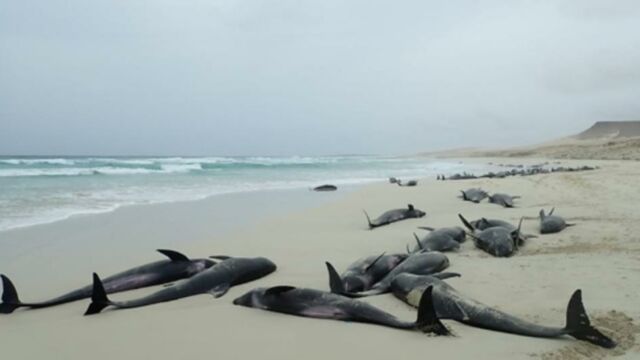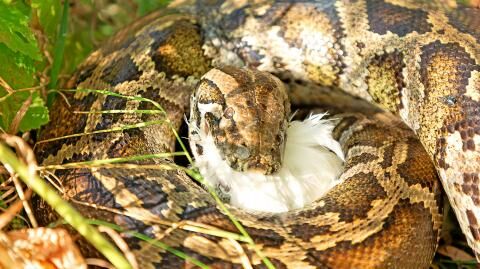We’re well aware of this by now, but when you push nature, you pay the price. On 24th September, 136 melon-headed dolphins including adults as well as their offspring and younger specimens, were found beachedon the eastern shore in Boa Vista, one of the islands that make up the island state off the coast of West Africa, as Obs reported. By the time the day was over, despite environment activists, firefighters, islanders and even foreign tourists reacting and mobilising, 136 corpses were counted, suggesting that some of the 163 corpses may have remained in the sea and would wash up somewhere else.
Discover our latest podcast
A not so rare occurrence
These melon-headed dolphins, also known as Peponocephala Electra, who are common species to observe off the coast of Cape Verde, aren’t the first to have washed up on the beaches of Cape Verde.
‘As bad and as rare as it is, it has happened in the past, just like in 2007 when we found 200 of the same species,’ said Katia Lopes, a coordinator from the charity organisation BIOS.CV from Cape Verde who released some of the images.
Cape Verde, just like other regions in the world, is a common place for marine animals to wash up on the beaches. There are several reasons for why this could be, both explained or otherwise and both caused by human activity and nature. The precise reasons behind this specific beaching of dolphins is still a complete mystery, although some people believe it could be due to natural causes such as disease, or some other kind of human activity.
Additional analysis is pending
‘Lots of people have been speculating about sonar activities’ or possible military exercises off the coast, as Katia Lopes explained, highlighting that these are just speculations and that the leader of the group could possibly have been ill which could have caused others in the group to die as well.
‘This could be due to several things’, she continued.
Fortunately, ‘we have a lot of information’ she continued. Samples have been taken from 50 of the dolphins and four of the corpses were frozen. Vets from the University of Las Palmas (Canary Islands) are expected to determine the causes of what happened as part of the European project Marcet.
Marcet is a project dedicated to protecting cetaceans and other marine life as well as promoting sustainable and ecological tourism activities which takes place around the islands in this part of the Atlantic. Contrary to custom, the organisation has received calls from dozens of journalists from all around the world over the past few days who have seen the photos of this carnage.
‘I want to see something positive come from this,’ affirms Katia Lopes.















